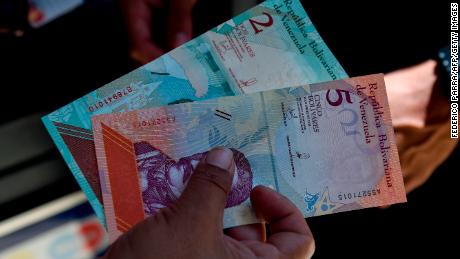Venezuela announced a dramatic hike to the minimum wage Monday in a move that critics expect will do little to alleviate widespread suffering in the crisis-torn country.
The monthly package of pay and bonuses workers will soon bring home equals roughly $15 monthly, socialist party lawmaker Francisco Torrealba said on Twitter, announcing the increase of more than 350 per cent.
It’s the third pay raise this year in Venezuela, a once-wealthy oil-producing nation plunged into an economic crisis with hyperinflation that devours the regular increases.
Critics immediately lashed out, saying the bump lacks accompanying measures by President Nicolas Maduro’s socialist government to fix the broken economy and end hyperinflation. A whole chicken at a supermarket in September cost 80,000 bolivars, equivalent to roughly $4.
“They continue to mock working people,” said opposition leader Juan Guaido, critical of Maduro who didn’t personally explain the change. “Without owning up to it, he leaves his sad announcement to somebody else.”
Guaido early this year launched a campaign to oust Maduro with backing from the United States and more than 50 other nations.
Maduro, who hasn’t addressed the increase, maintains power with support from the military and nations including Cuba, China and Russia.
Diego Moya-Ocampos, a Venezuela analyst with the London-based consulting firm IHS Global Insight, said yet another wage increase will have only short-lived positive impact for most Venezuelans enduring shortages of food, medicine and gasoline.
The soaring inflation will shrink their pay in bolivars to the equivalent of a few dollars, Moya-Ocampos said, adding that Maduro’s government likely timed it ahead of the holiday seasons, trying to avoid protests common to the turbulent nation.
“It is an effort to throw money into the streets, to put people in this sort of party mode,” the analyst said. “In reality, it’s going to push inflation even further, systematically undermining workers’ purchasing capacity.”




